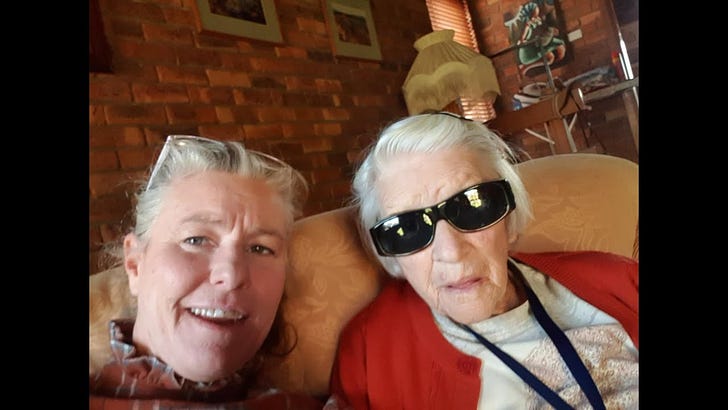Minister Allows Councillors to Sign Under Duress: A Difficult Path for Local Governance - By Chris Chan
Recent developments in the Snowy Monaro Regional Council (SMRC) have put our Independent councillors in an incredibly difficult position. The Office of Local Government (OLG) has now clarified that councillors may sign a mandatory undertaking in whatever manner they wish, including under duress. While this clarification offers flexibility, it also highlights the immense pressures councillors face in fulfilling their duties, while upholding their obligations to the local community.
Understanding Vi Coactus (VC)
Vi Coactus (VC) is a Latin phrase meaning “having been forced" or "having been compelled”. It is often used in legal contexts to indicate that a person has signed a document unwillingly due to external pressure. By adding "VC" next to their signature, a signatory signals that their agreement is not voluntary, which can have legal implications if the document is later challenged.
The Background: The Performance Improvement Order
A Performance Improvement Order (PIO) was recently issued by the Minister for Local Government, requiring SMRC councillors to sign an undertaking as part of the compliance process. Initially, interim CEO Stephen Dunshea advised councillors that the OLG had directed him to reject any undertaking signed with "VC."
Councillor Andrew Thaler, sought clarity on this restriction. The OLG later revised its stance, confirming that councillors may sign the document "in the manner they wish." This decision recognizes the difficult situation in which councillors find themselves—compelled to comply with the directive while also feeling the need to register their concerns.
The Challenge for Independent Councillors
Balancing Integrity and Compliance: Independent councillors, many of whom have consistently advocated for transparency and responsible governance, are now being asked to sign a document under significant pressure. Their ability to register "VC" ensures their concerns are noted, but it does not alleviate the fundamental issue of being required to sign in the first place.
Maintaining Public Trust: Councillors must navigate a fine line between fulfilling their obligations and maintaining the trust of the community. If they sign without protest, they may be seen as conceding to pressures that they have previously opposed. Conversely, outright refusal to sign could be perceived as non-cooperation, further complicating their positions.
Legal Considerations: While the allowance of "VC" gives councillors a means of signaling duress, it is unclear whether this will hold weight if legal challenges arise in the future. The lack of precedent for such a situation leaves both councillors and the public with many unanswered questions.
The Minister’s Role: The OLG’s shift in guidance suggests a willingness to provide councillors with some latitude in how they comply. While some may see this as a pragmatic adjustment, others may still feel that the requirement to sign at all places undue pressure on local representatives.
Why This Matters for Snowy Monaro Residents
The Snowy Monaro community has already faced significant challenges with governance, financial management, and infrastructure concerns - even prior to the issuance of the current Performance Improvement Order. This latest situation adds another layer of complexity to an already strained relationship between the council and its constituents. Independent councillors, who have often been voices for accountability, now face an impossible choice—sign and move forward under duress, or resist and risk being removed from their roles serving the local community.
Moreover, this situation raises broader questions:
To what extent do local representatives retain their autonomy when higher authorities impose directives?
Can a Minister enforce compliance that contradicts the judgment of elected officials, without himself facing scrutiny?
Why do Labor elected representatives (who have a higher responsibility to Party comrades) retain the right to speak publicly in some jurisdictions, while others, such as those in SMRC, appear to face restrictions?
These are pressing concerns that go beyond Snowy Monaro and touch on the fundamental principles of democratic governance, free speech and transparency.
What Comes Next?
With councillors now allowed to sign Vi Coactus, their decisions in the coming days will be closely watched. Councillors’ ability to continue advocating for the community while fulfilling mandated obligations to the Minister are important to the community. After all, the Office of Local Government states: “All councils in NSW are independent, locally elected corporate bodies.” Independent - or independent as long as they toe the line and remain under the thumb of collectivist party officials? We’ll find out soon.
This is not just a bureaucratic challenge; it is a test of democratic resilience. The people of Snowy Monaro deserve representatives who can operate without undue pressure, and councillors deserve a process that allows them to act in the best interests of their community.
Moving forward, it is essential that transparency and accountability remain at the forefront of council operations.
We hope this article has resonated with you. If it has, please share and spread the word, and demand change. The truth belongs to all of us, but only if we have the courage to claim it. Together, we can shine a light on the shadows of governance and bring accountability back from the brink.
But remember... the next move isn’t up to them. It’s up to you. Because in the Snowy Monaro, transparency isn’t just a policy—it’s the difference between light and dark.












Share this post